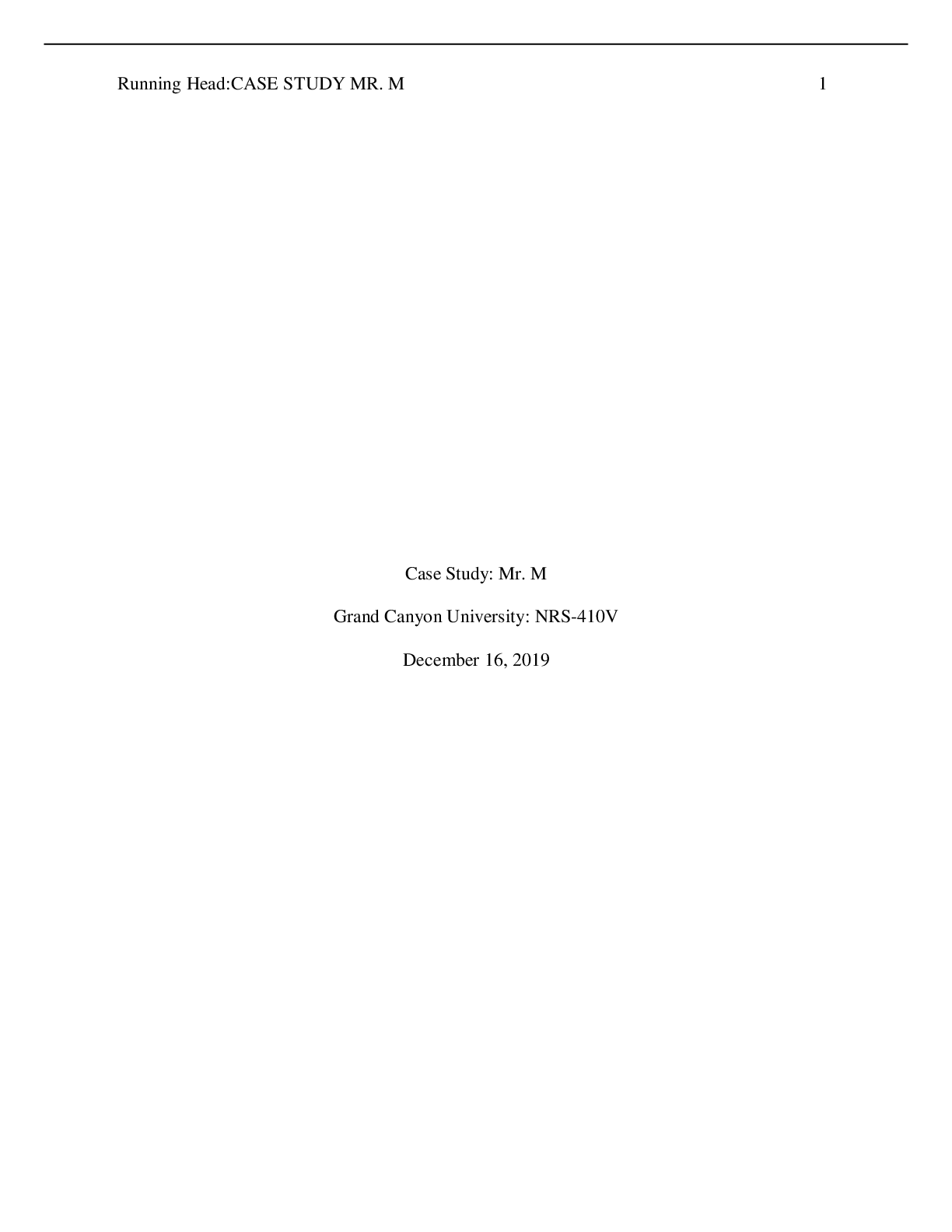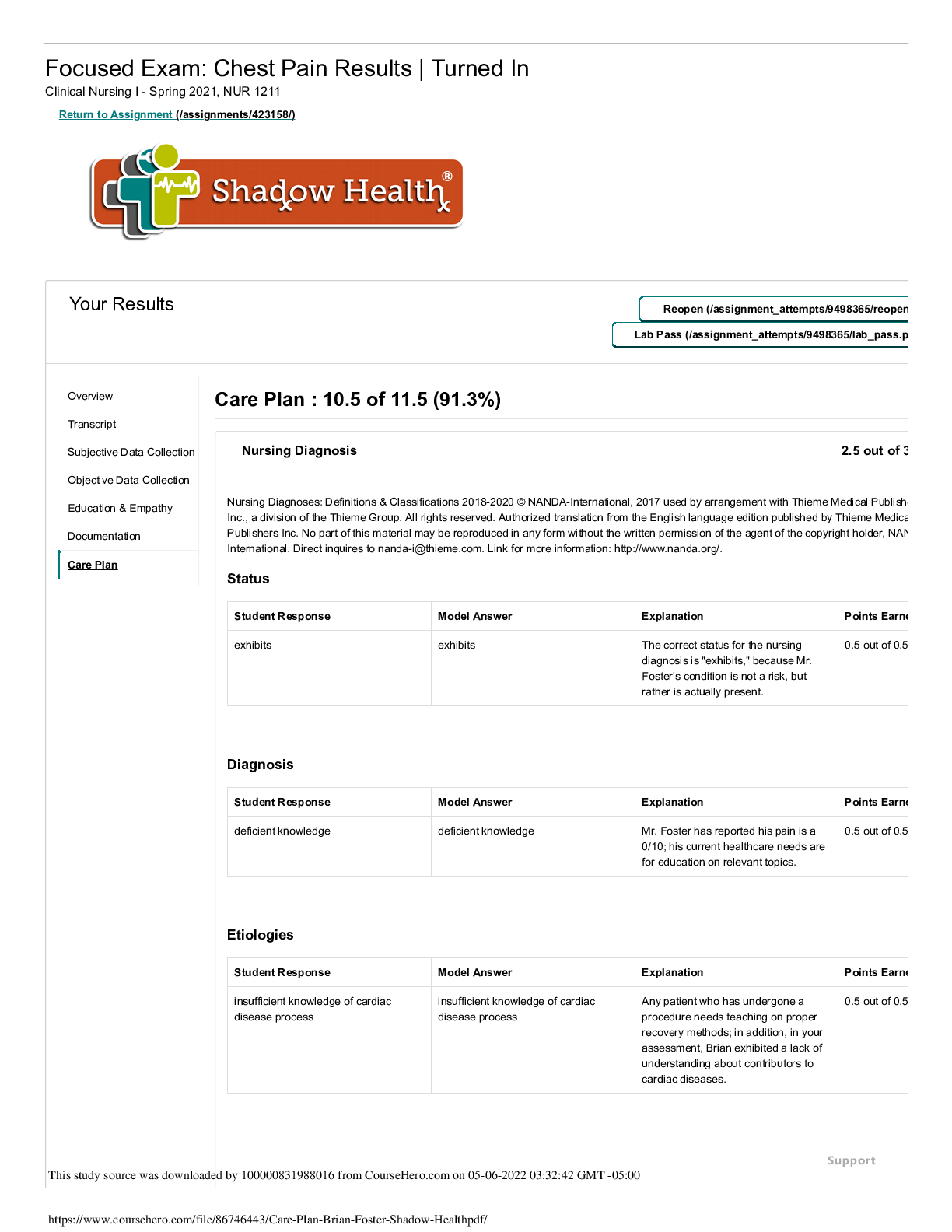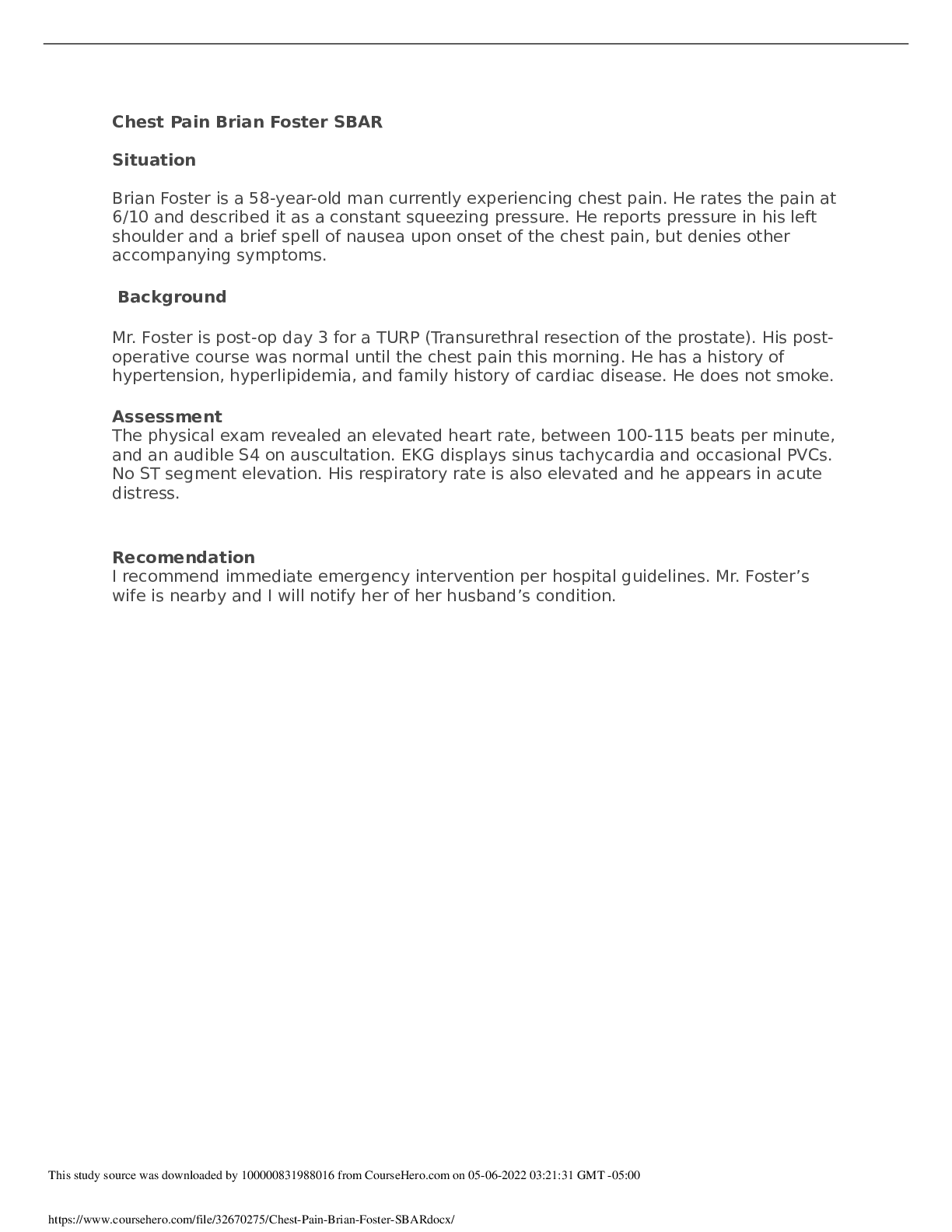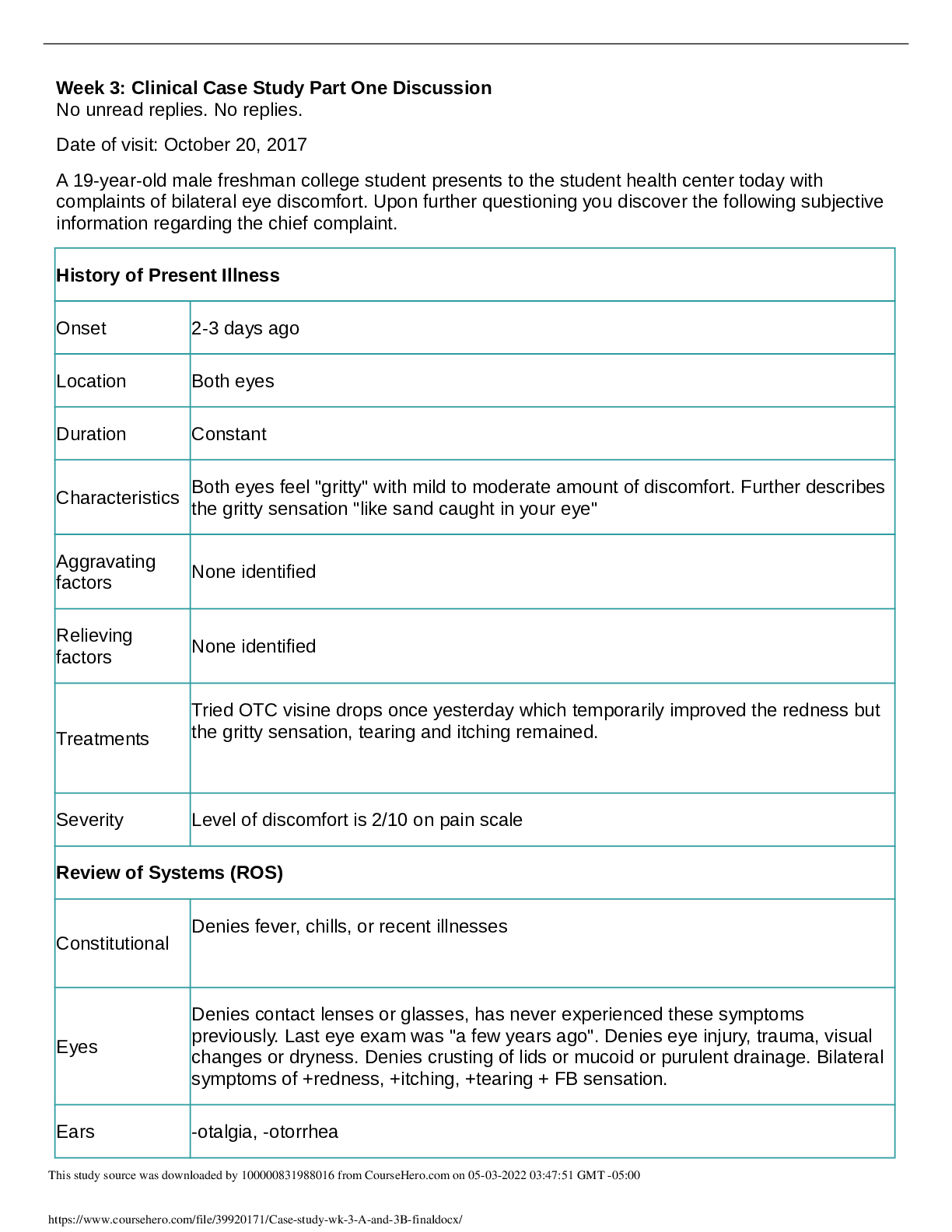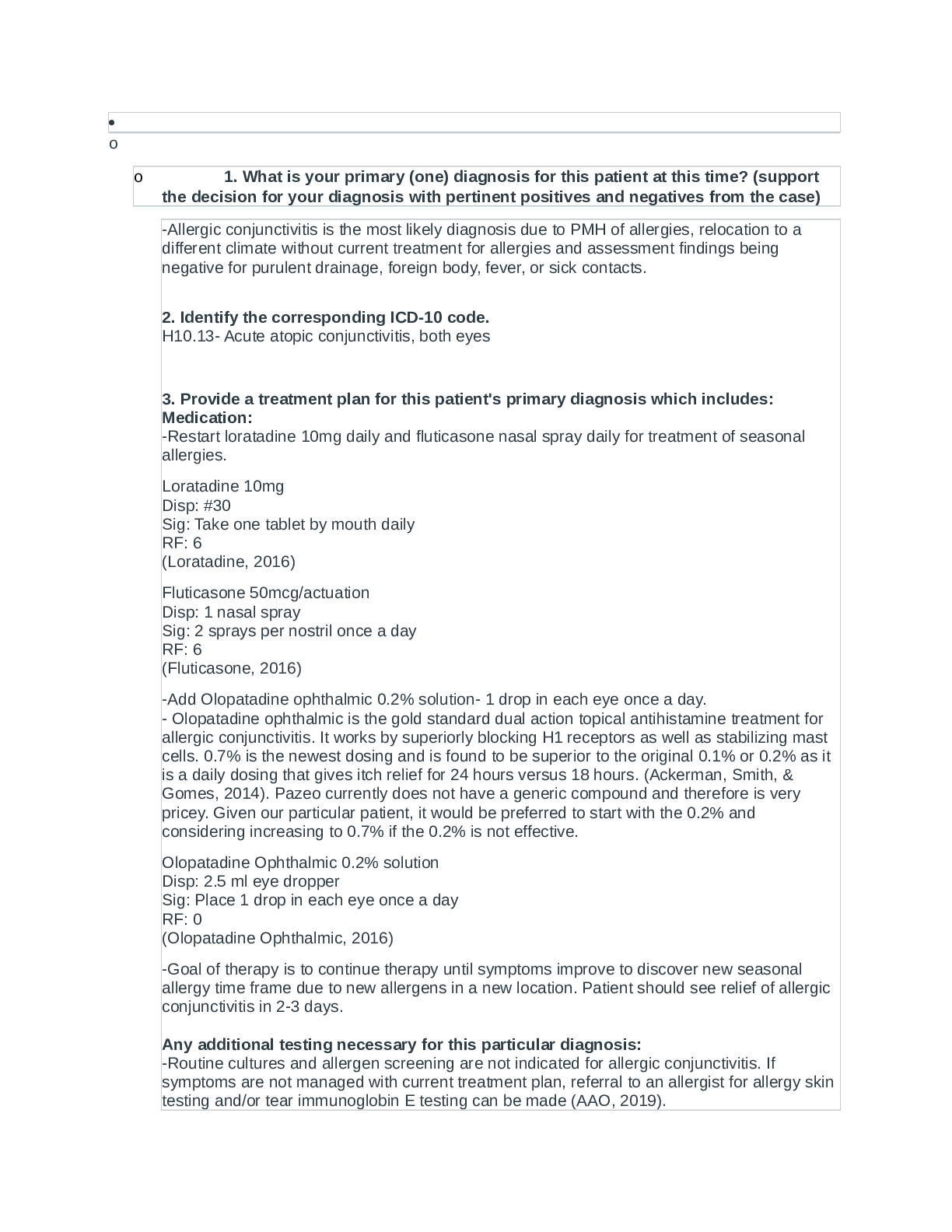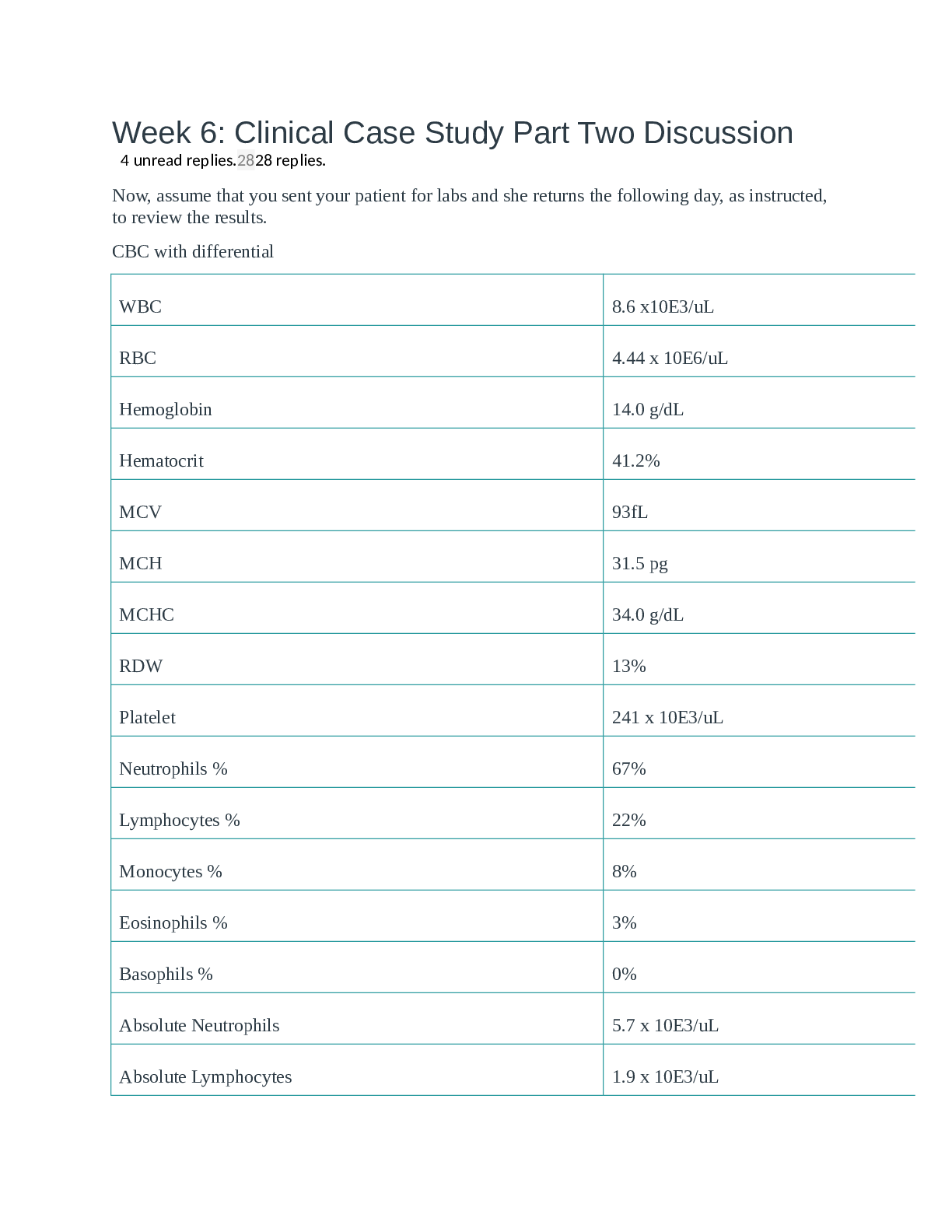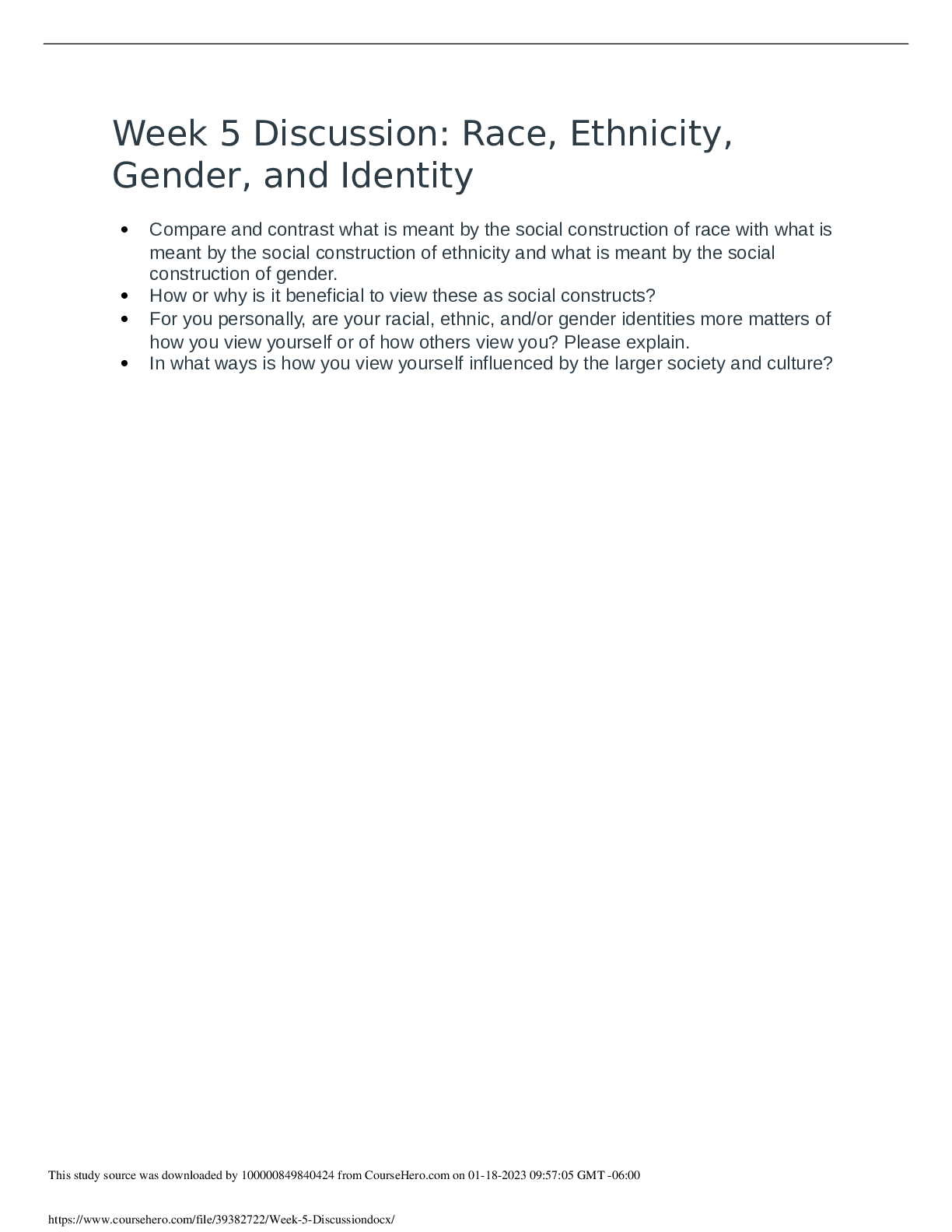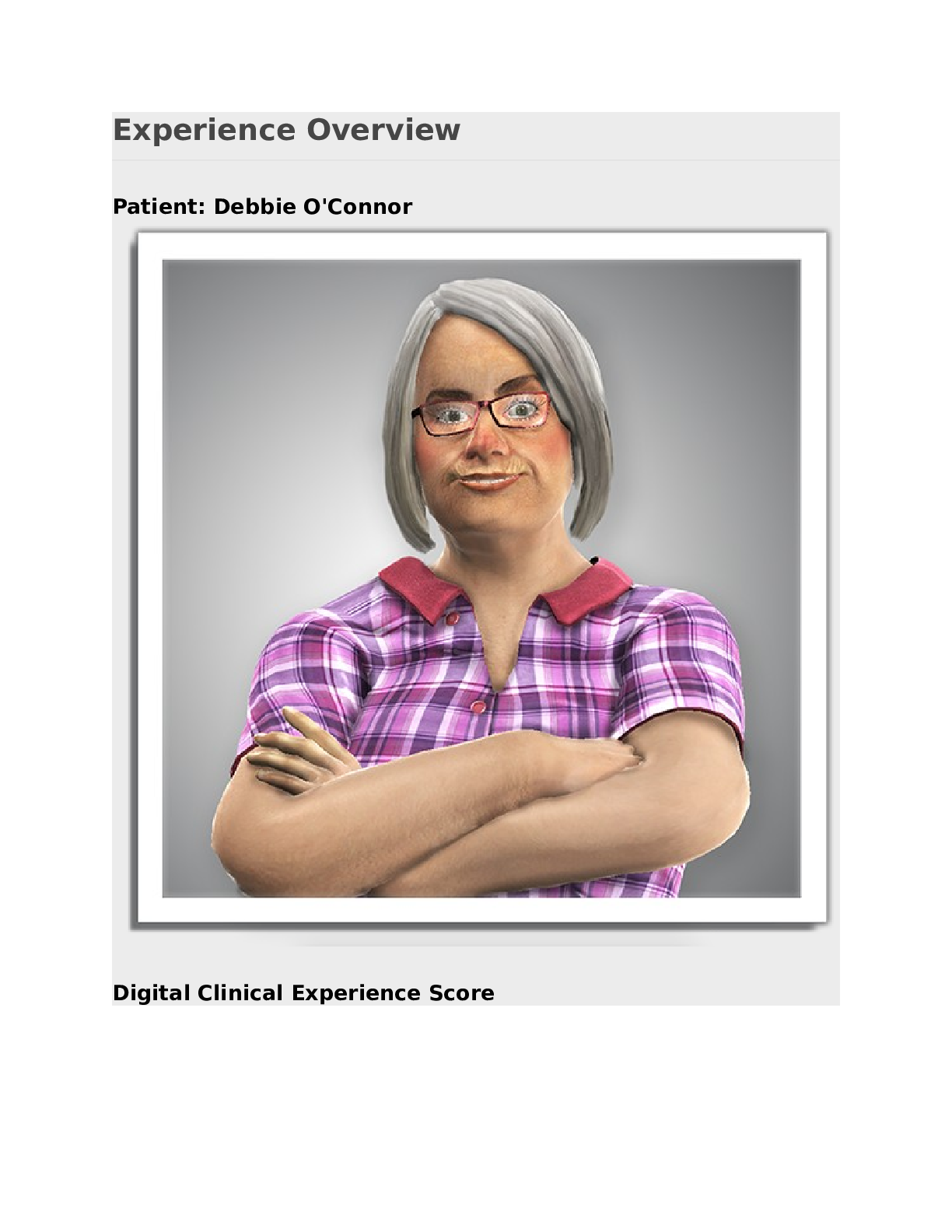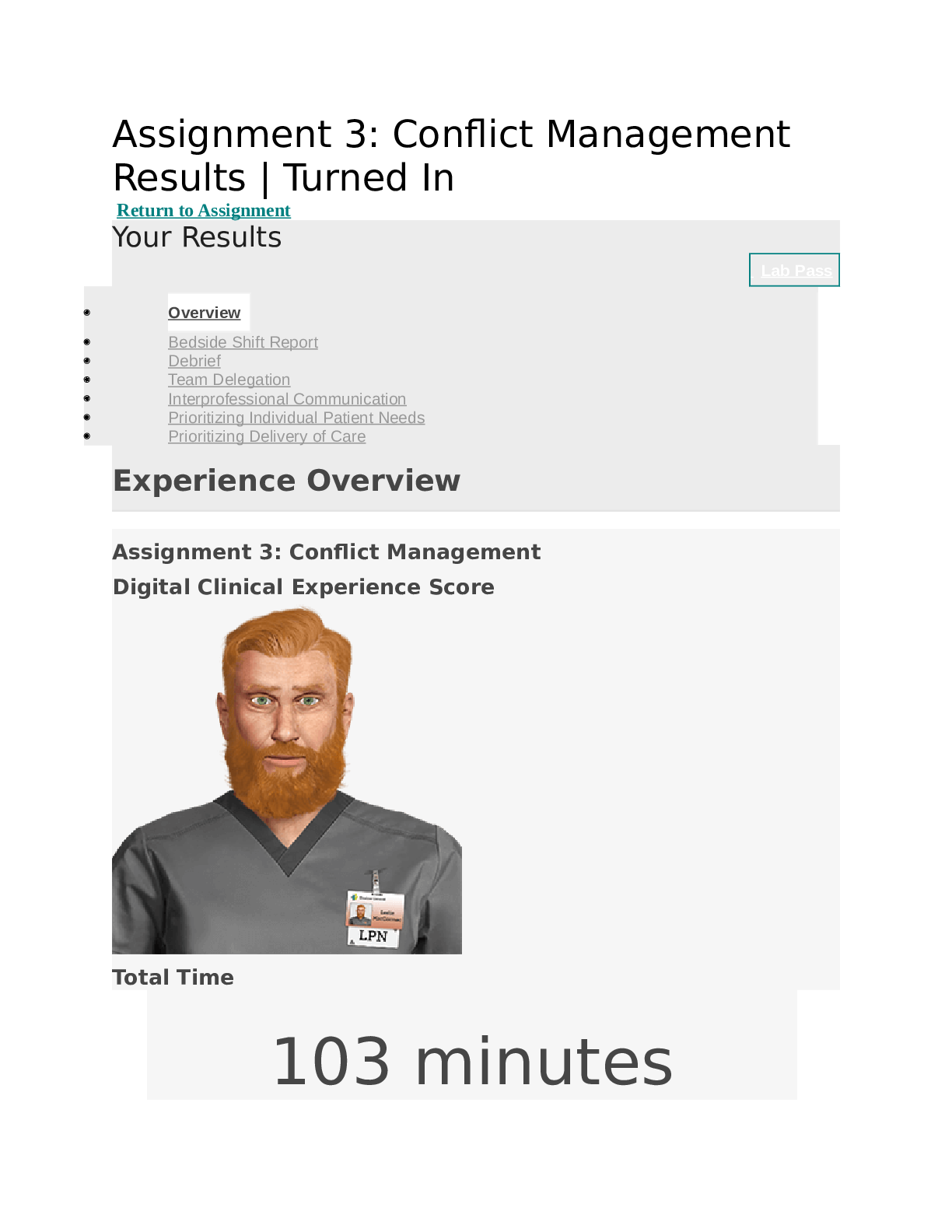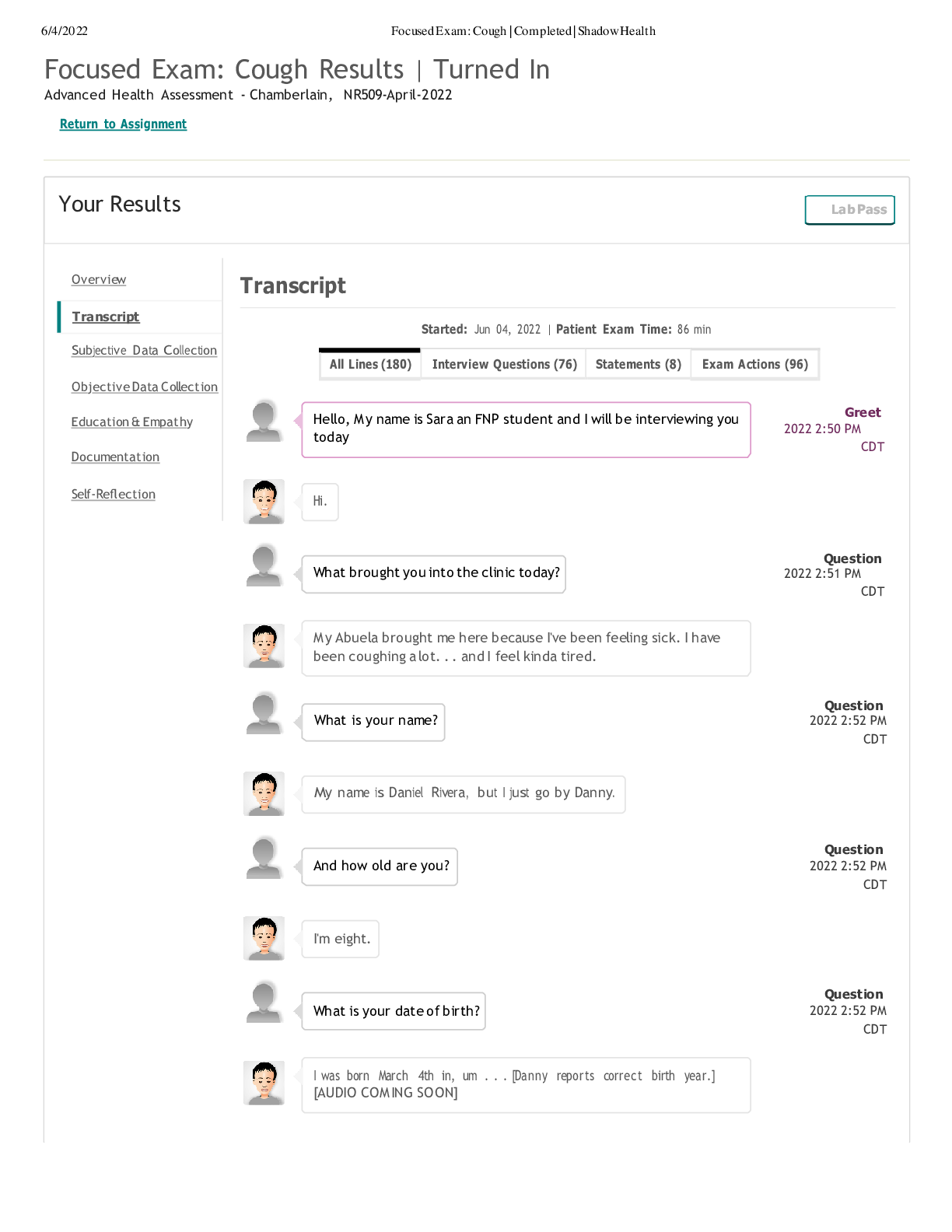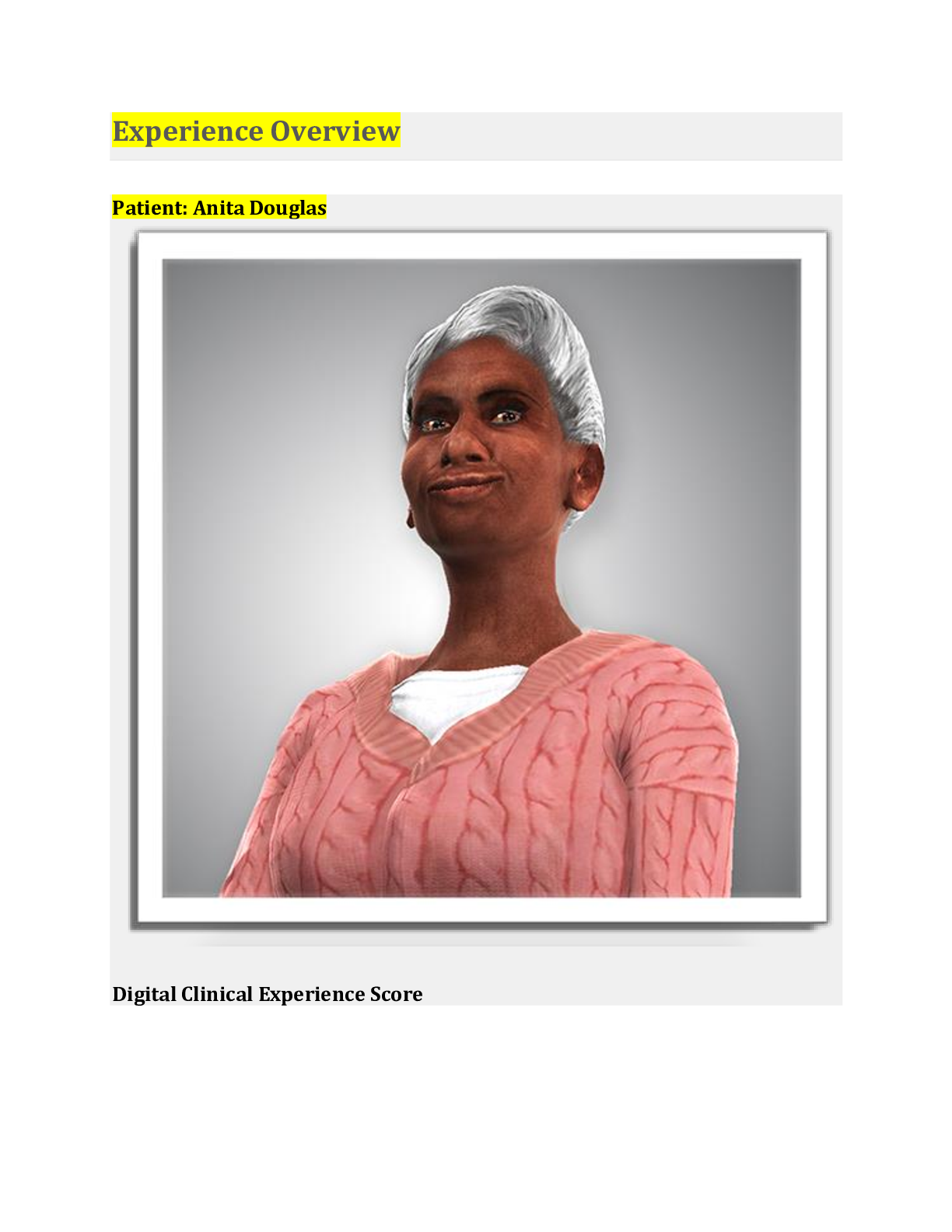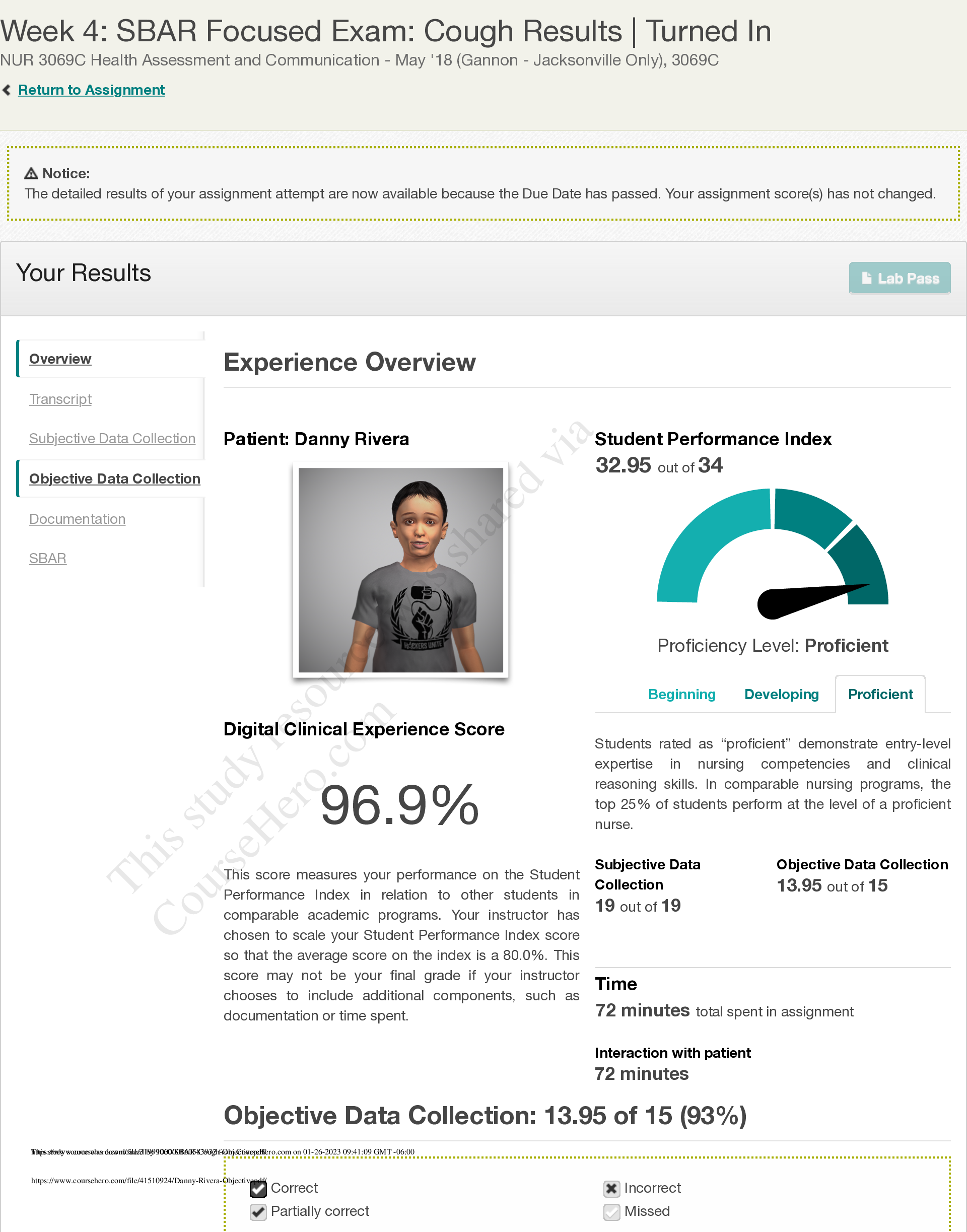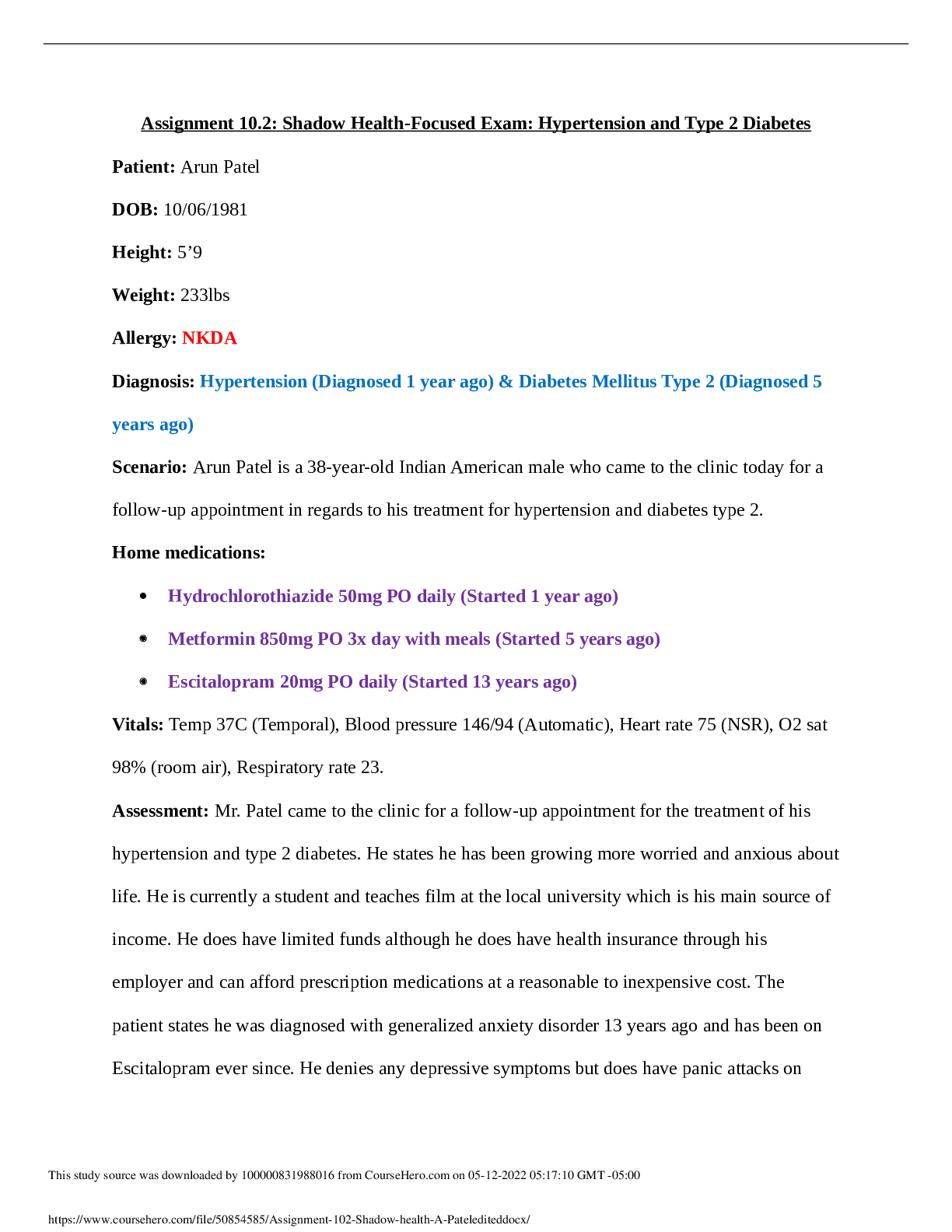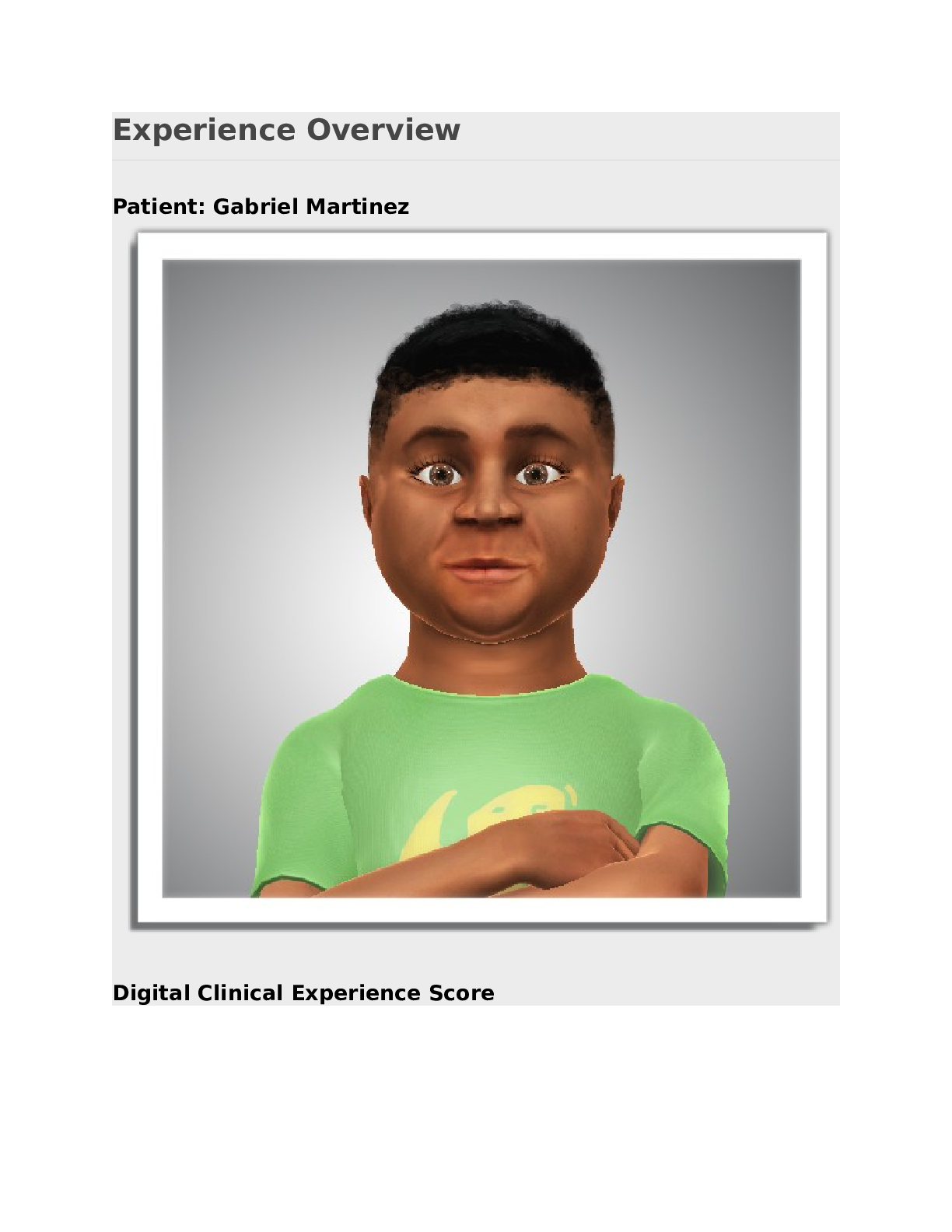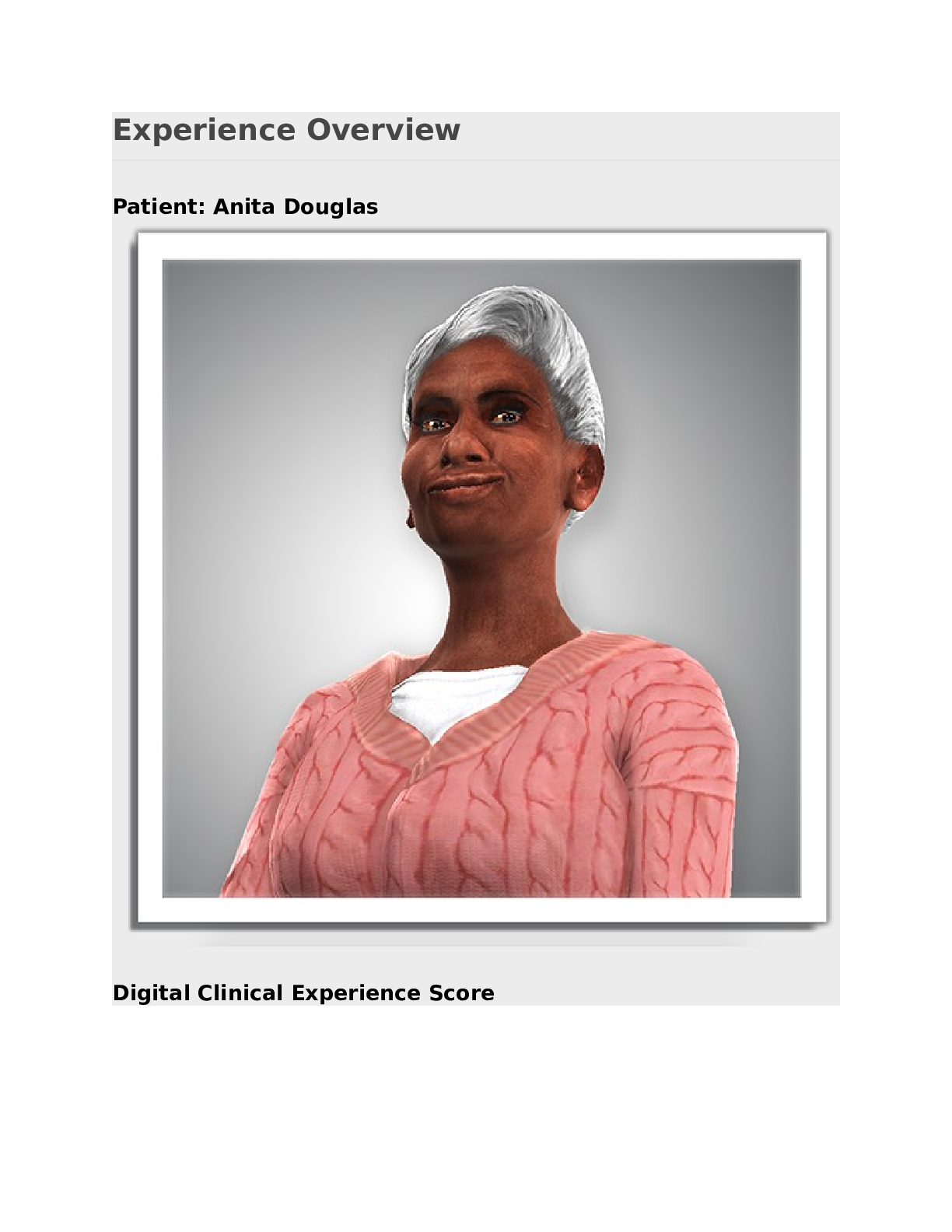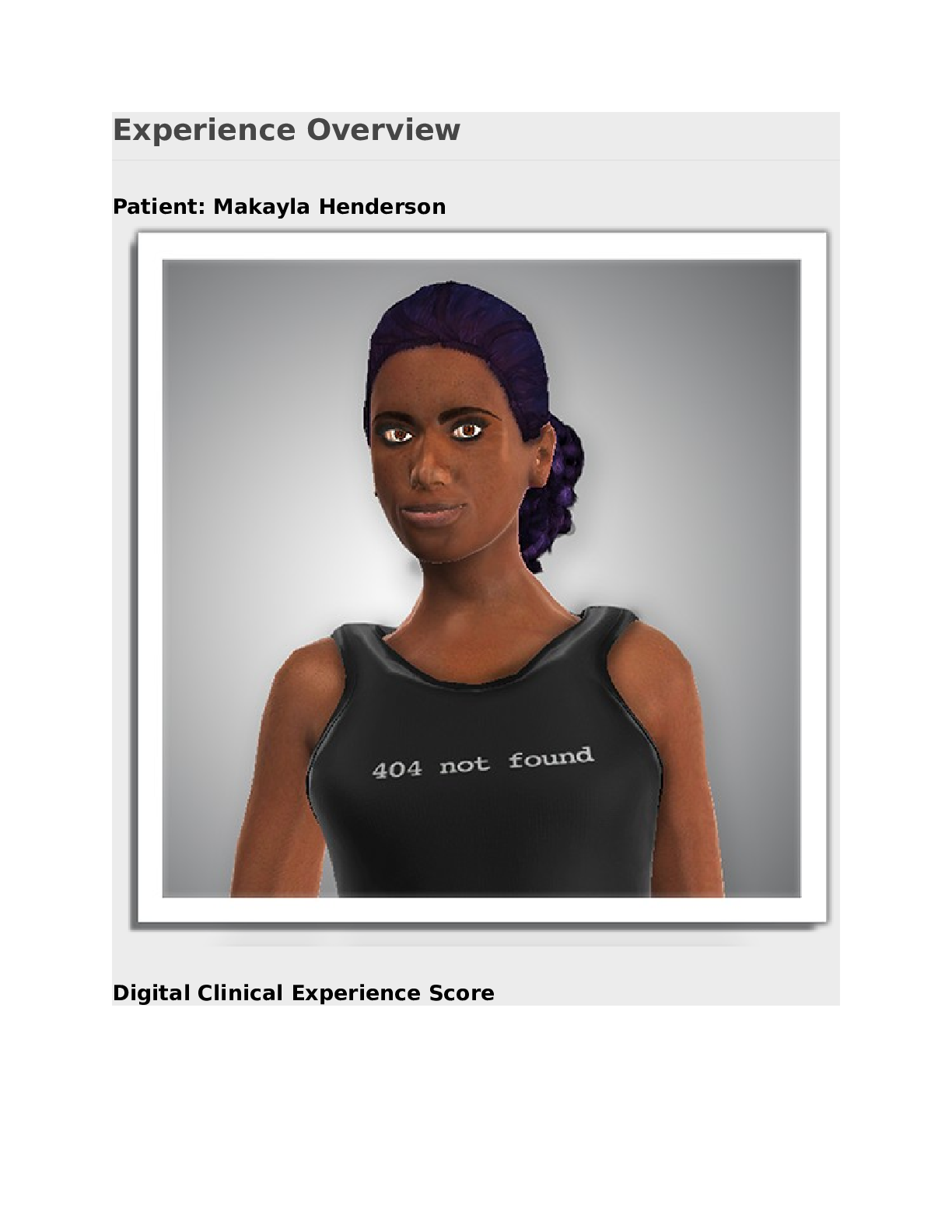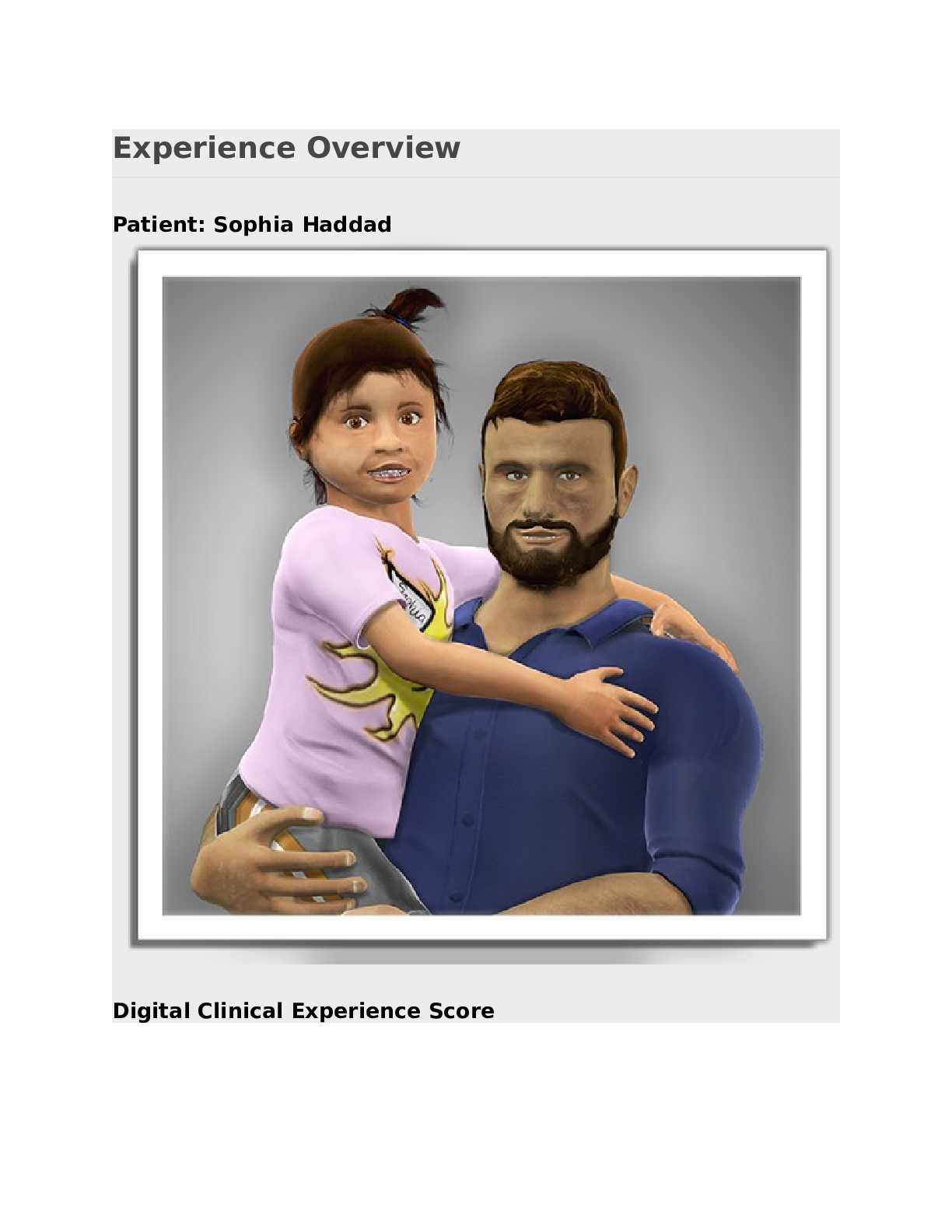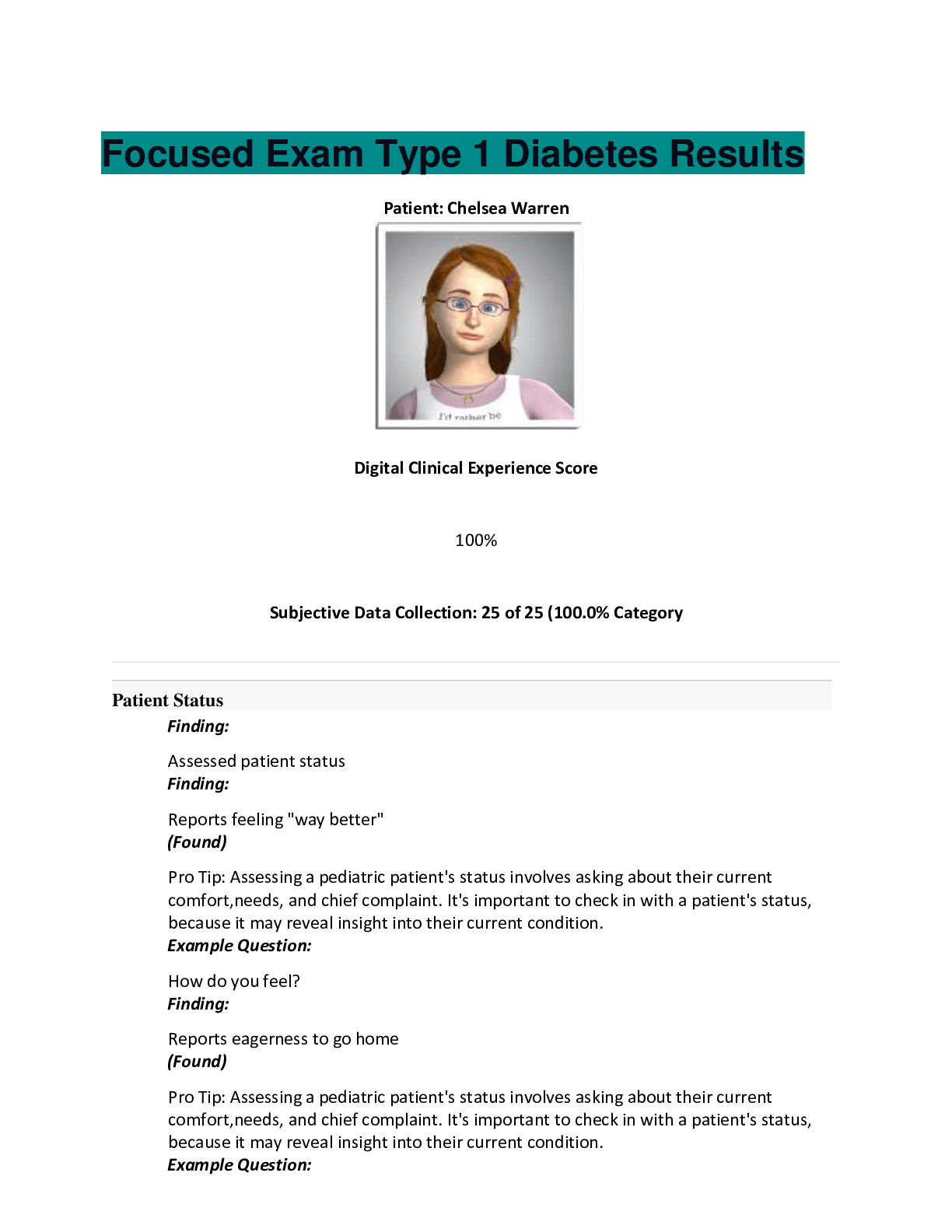*NURSING > CASE STUDY > Experience Overview: FOCUSED EXAM: COUGH Patient: Danny Rivera Digital Clinical Experience Score 100 (All)
Experience Overview: FOCUSED EXAM: COUGH Patient: Danny Rivera Digital Clinical Experience Score 100%
Document Content and Description Below
Experience Overview: FOCUSED EXAM: COUGH Patient: Danny Rivera Digital Clinical Experience Score 100% Student Performance Index 34 out of 34 Subjective Data Collection 19 out of 19 Objective ... Data Collection 15 out of 15 Subjective Data Collection: 19 of 19 (100.0%) A combination of open and closed questions will yield better patient data. The following details are facts of the patient's case. Chief Complaint Finding: Established chief complaint Finding: Reports cough (Found) Pro Tip: Asking a patient broadly about their chief complaint allows them to answer in their own words and confirm information that you may have already received from another source. Example Question: Do you have a cough? History of Presenting Illness Finding: Asked about onset of cough Finding: Reports cough started 3 days ago (Found) Pro Tip: Whenever you are assessing a symptom or a health condition, in this case the patient's cough, inquiring about onset assesses the severity and the progression of the problem. Example Question: How long have you had a cough? Finding: Asked about characteristics of cough Finding: Reports cough is wet (Available) Pro Tip: The characteristics of a cough, such as whether it is dry or wet, can indicate key information about the type of illness the patient has. Example Question: Is your cough a wet cough? Finding: Reports clear sputum with cough (Found) Pro Tip: The characteristics of a cough, such as whether it is productive, can indicate key information about the type of illness the patient has. Example Question: Do you produce any phlegm or sputum with your cough? Finding: Asked about frequency and duration of cough Finding: Reports coughing every few minutes (Found) Pro Tip: Establishing how frequently Danny coughs will illustrate how long he has been suffering these particular symptoms and might indicate possible triggers. Example Question: How frequently are you coughing? Finding: Reports coughs last a few seconds (Available) Pro Tip: Establishing how long Danny's coughs last will illustrate how long he has been suffering these particular symptoms and might indicate possible triggers. Example Question: How long do your coughs last? Finding: Asked about aggravating factors for cough Finding: Reports cough is worse at night (Found) Pro Tip: Establishing a timeline for Danny's coughing will illustrate how long he has been suffering these particular symptoms and might indicate possible triggers. Example Question: Is the cough worse at night? Finding: Denies smoking (Available) Pro Tip: Tobacco use puts the patient at risk for many medical conditions. Asking even young patients about whether they consume tobacco products helps you assess this risk factor. Example Question: Do you smoke? Finding: Reports being exposed to secondhand smoke through father (Available) Pro Tip: Tobacco use puts the patient at risk for many medical conditions. Asking about whether a patient is exposed to secondhand smoke allows you to assess this risk factor. Example Question: Are you ever around cigarette smoke? Finding: Reports he doesn't know what triggers the cough (Found) Pro Tip: Asking about aggravating factors of Danny's cough will allow you to determine potential causes and educate the patient on what to avoid. Example Question: What makes your cough worse? Finding: Asked about relieving factors for cough Finding: Reports cough is temporarily relieved by cough medicine (Found) Pro Tip: Asking about how the patient has been managing their pain assesses their current condition and their approach to self-care. The results of their previous treatment may be helpful in your diagnosis and the development of their new treatment plan, as well as a good opportunity to educate the patient on effective self-care practices. Example Question: Have you done anything to treat your cough? Finding: Followed up on cough medicine Finding: Reports cough medicine was purple (Available) Pro Tip: The type of cough medicine a patient takes, and how they take it, can impact its effectiveness. Following up on the cough medicine's color may help you identify the type of medication it is. Example Question: What color was the cough medicine? Finding: Reports taking one spoonful of cough medicine (Available) Pro Tip: The type of cough medicine a patient takes, and how they take it, can impact its effectiveness. Following up on the dose of cough medicine allows you to determine whether it is being taken correctly. Example Question: How much medicine did you take? Finding: Reports mother gave him the medicine (Found) Pro Tip: Children should only take medication under the supervision of an adult who can assure it is taken as directed. You should ask younger patients whether the medicine was given to them and by whom. Example Question: Who gave you the medicine for your cough? Finding: Reports only took the medicine this morning (Found) Pro Tip: The type of cough medicine a patient takes, and how they take it, can impact its effectiveness. Following up on the frequency Danny took cough medicine allows you to determine whether it is being taken correctly. Example Question: How many times have you taken the cough medicine? Finding: Denies home remedies (Available) Pro Tip: Patients sometimes try non-medicinal home remedies to treat coughs, such as breathing steam, or drinking tea with honey. Not all home remedies are effective or advisable, so it's important to find out what remedies the patient has tried. Example Question: Have you tried any home remedies for your cough? Finding: Asked about typical medication use Finding: Denies taking medication (Found) Pro Tip: Knowing a patient's current medication regimen helps you determine if any future treatments will be safe and effective. Example Question: Do you take any medications from a doctor? Finding: Reports taking daily vitamin (Found) Pro Tip: Some symptoms can occur as a result of a vitamin deficiency, and others as a result of vitamin excess. Vitamins can also interfere with some treatments, so it's important to know what your patient is taking. Example Question: Do you take vitamins? Finding: Asked about activity level Finding: Reports typical high activity level [Show More]
Last updated: 1 year ago
Preview 1 out of 24 pages

Reviews( 0 )
Document information
Connected school, study & course
About the document
Uploaded On
Sep 23, 2021
Number of pages
24
Written in
Additional information
This document has been written for:
Uploaded
Sep 23, 2021
Downloads
0
Views
102


